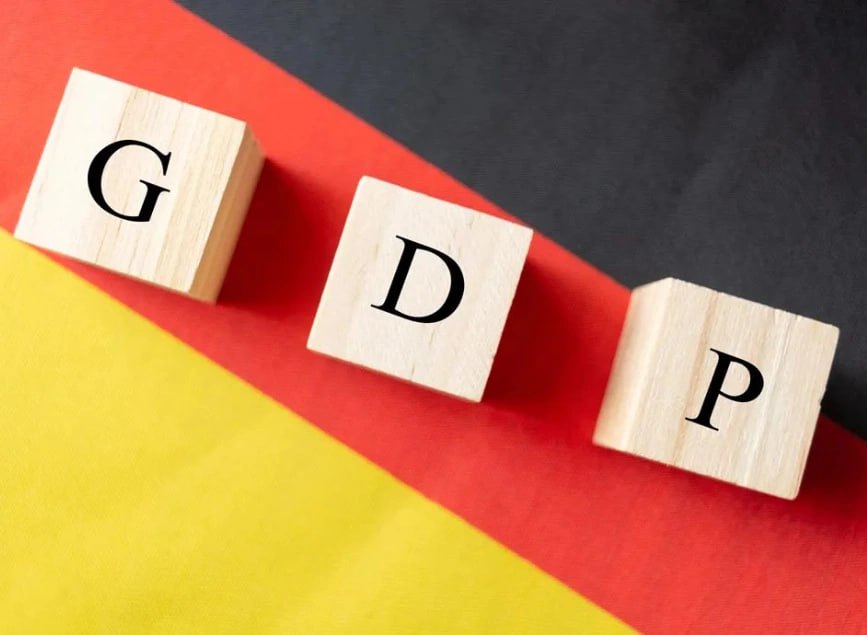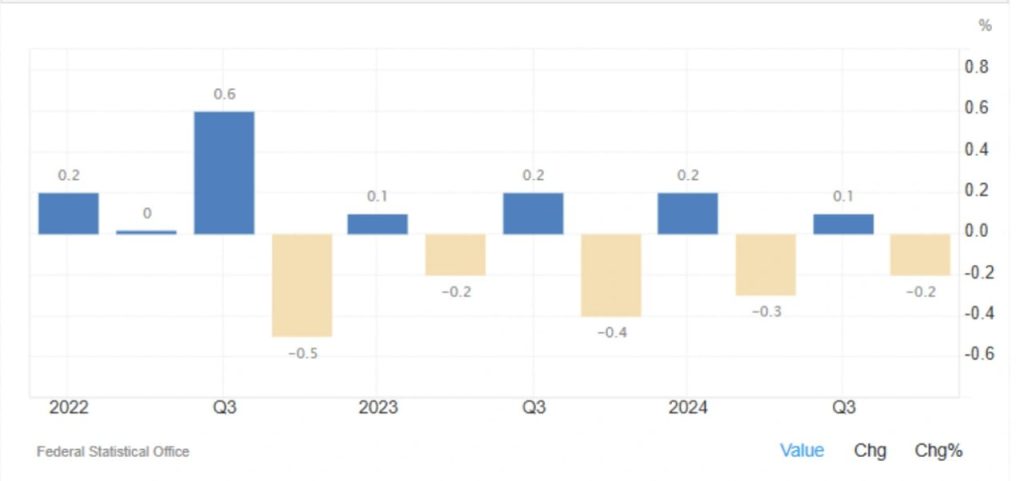
Germany’s Economy Contracts: A Deeper Look at the Challenges
Germany’s Economy Contracts by 0.2% in the final quarter of 2024, following a modest 0.1% expansion in Q3. This contraction was sharper than analysts’ expectations of a 0.1% decline, according to preliminary estimates. The primary driver of this downturn was a significant drop in exports, which outweighed gains in private and government consumption. On a year-over-year basis, GDP also contracted by 0.2%, highlighting the persistent economic struggles faced by Europe’s largest economy.

A Two-Year Downturn and Revised 2025 Forecasts
For the full year of 2024, Germany’s economy shrank by 0.2%, following a deeper 0.3% decline in 2023. These back-to-back contractions underscore a broader economic slowdown. Looking ahead, the government has downgraded its 2025 growth forecast from 1.1% to a modest 0.3%, reflecting ongoing uncertainty. Economic policymakers warn that without structural reforms, the country’s growth prospects will remain weak.
Read More: Germany’s Services Sector Returns to Growth
Structural Issues Hamper Growth
Germany’s economy minister has pointed to long-standing structural issues that are weighing down growth. A shortage of skilled labor, burdensome bureaucracy, and insufficient investment in both the private and public sectors are major obstacles. Additionally, external pressures such as soaring energy prices, weak global demand, and a decline in competitiveness are exacerbating economic challenges. Without significant policy shifts, these factors could continue to dampen economic performance.
Business and Political Implications in Germany’s Economy Contracts
With parliamentary elections set for February, economic concerns are expected to take center stage. Business leaders are likely to push for measures that reduce energy costs and lower corporate taxes to stimulate growth. As Germany grapples with economic headwinds, the coming months will be crucial in determining whether the government can implement reforms to restore confidence and reinvigorate Europe’s economic powerhouse.
Share
Hot topics

Federal Reserve’s Challenges to Trump’s New Policies
As the Federal Reserve Open Market Committee (FOMC) prepares for its upcoming meeting, all eyes are on how the Fed will respond to Donald Trump’s latest economic policies. With the...
Read more




Submit comment
Your email address will not be published. Required fields are marked *